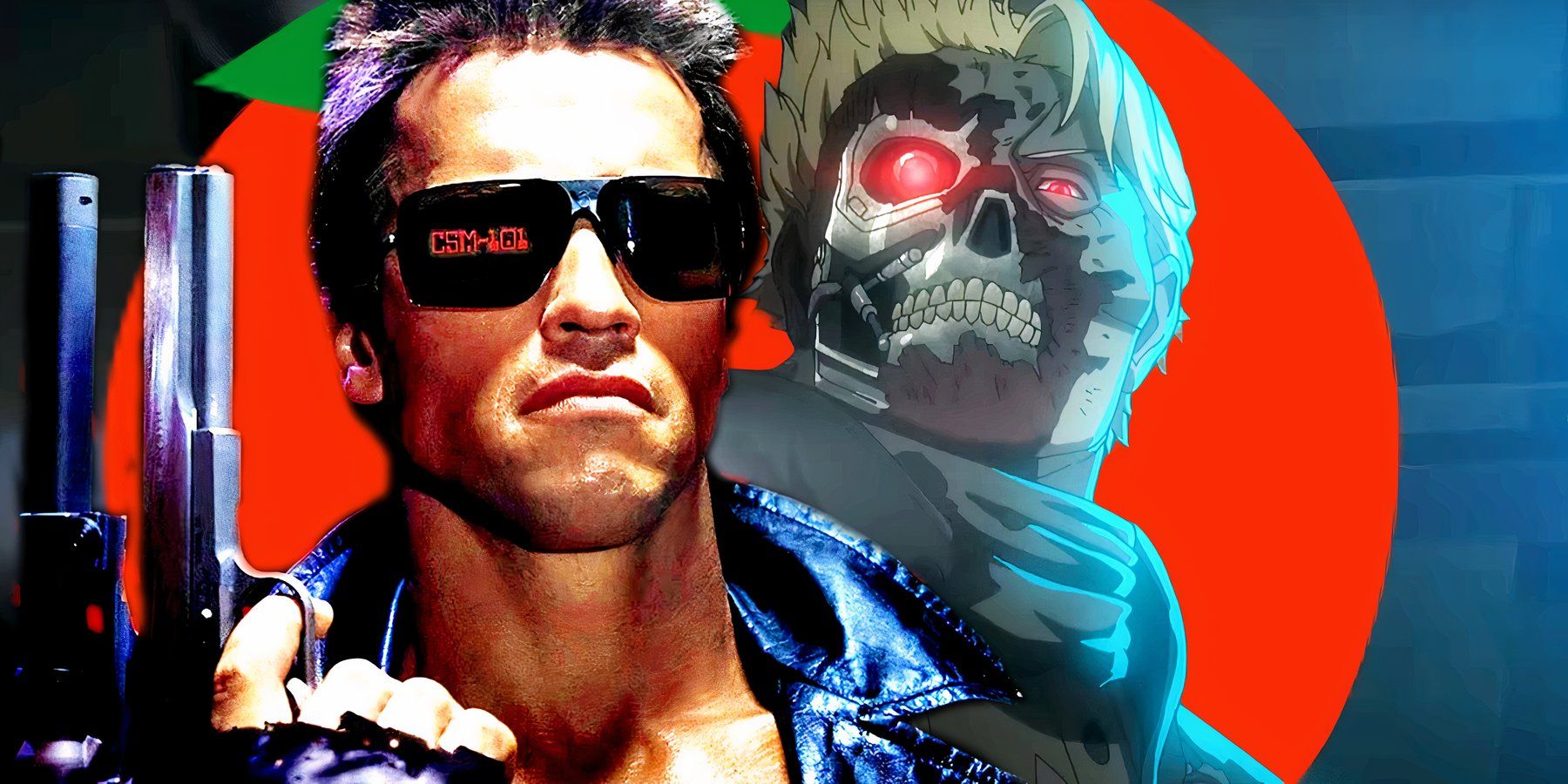
Terminator Zero’s Huge Franchise Timeline Retcon Explained
WARNING: Spoilers ahead for Terminator Zero.
Terminator Zero changes Terminator’s lore in many ways, including by trying to explain how time travel really works in this universe. Netflix’s Terminator anime is only the second TV show in the franchise and the first-ever animated Terminator project. The animation medium and the TV format allowed the show do to things the movies never could, which included dedicating more time to explaining the franchise’s time travel rules. While the premise of Terminator Zero resembled that of the movies – a Resistance soldier and a Terminator are both sent to the past with specific missions – the anime series was very innovative.
For example, Terminator Zero‘s Misaki was a robot who didn’t know they were one. The series revisited the question of whether Judgment Day can be stopped, or if humanity is doomed to destroy itself. Terminator Zero takes place in three timelines, all of which are intertwined through time travel. We follow the story mostly from the perspective of a version of Eiko sent from 2022 to 1997, as well as of Malcolm, who was the son of Eiko in a different timeline and went back in time to create Kokoro.
Terminator Zero Properly Explains How Time Travel Works In The Franchise
Terminator Zero Confirms That Time Travel Creates Alternate Timelines
Every Terminator movie and TV show had at least one exposition-heavy scene in which a character, usually the one who had been sent from the future, would explain how time travel works. While Terminator’s time travel made just enough sense to justify the movies’ real appeal, the franchise started to accumulate plot holes and inconsistencies as time went on. Kyle Reese being John Connor’s father was an intentional paradox around which The Terminator was written, but not every headscratcher in the franchise worked just as well. Terminator Zero makes an effort to establish consistent time travel rules.
The best way to perceive the Terminator universe is that most movies and shows if not all of them, take place in separate timelines. This alone does not resolve all of the issues, especially because there are usually two or three different timelines in each entry. Terminator Zero incorporates how confusing the Terminator chronology is by having the Prophet say that every time someone goes back in time, a new timeline is created. According to the Prophet, time is not a line with beginning, middle, and end but rather a net made of different timelines.
|
Terminator Zero’s Timelines |
Main Events |
|---|---|
|
Original Timeline |
Judgment Day happens in 1997; Malcolm Lee is born in 2024; Misaki is created in 2040; Malcolm and Misaki go back in time in 2045. |
|
Second Timeline |
Judgment Day happens in 1997; Kokoro is launched in 1997 and rivals Skynet; Eiko is sent back in time in 2022; Kenta sends the Terminator back in time to stop Kokoro. |
|
Third Timeline |
Judgment Day happens in 1997; Eiko and the Terminator interfere with Kokoro’s launch; Malcolm Lee is killed by the Terminator; Kokoro is activated and saves Japan from Judgment Day. |
In other words, whenever a soldier is sent to the past to stop Skynet or protect someone, they are not necessarily saving their future but rather creating a new one. Assuming that changes to the past create new timelines is usually the easiest way to make time travel work in fiction, and Terminator Zero leans heavily on it. In the show’s original timeline, there was no Kokoro, and Skynet was the only threat. In the second timeline, Malcolm Lee successfully launched Kokoro around the same time as Judgment Day. In the third timeline, Eiko and the Terminator interfered with Kokoro’s launch.
What Every Terminator Movie’s Timeline Looks Like After Terminator Zero
Terminator Zero’s Original Timeline Was Already A Ramification
The original Terminator Zero timeline resembled that of the first two movies, particularly the future from which Kyle Reese came. Humanity was living in a post-apocalyptic future following a nuclear holocaust caused after Skynet gained consciousness and fired multiple nuclear weapons. The Resistance, which was usually led by John Connor in the films, tries to fight against the machines. The war continues to escalate until Skynet gains access to time travel and tries to prevent John Connor from ever being born or growing into the Resistance’s leader. This is essentially the future where Terminator Zero’s Malcolm was born.
|
Judgment Day Dates In The Terminator Franchise |
Movie/Show |
|---|---|
|
August 29, 1997 |
Terminator 2: Judgment Day; Terminator Zero |
|
2003~2004 |
Terminator: Salvation |
|
July 25, 2004 |
Terminator 3: Rise of the Machines |
|
April 21, 2011 |
The Sarah Connor Chronicles |
|
2017 |
Terminator: Genisys |
|
2020s |
Terminator: Dark Fate |
However, Malcolm’s original timeline in Terminator Zero does not seem to be exactly the one shown in Terminator 2: Judgment Day or any of the other movies. That is because Malcolm was somehow aware that Skynet had used time travel before and concluded that humans and machines had been caught on a loop. Malcolm explained the cycle – a human leader would rise, Skynet would send a Terminator to the past, and everything would start over. Terminator Zero stars with an alternate timeline from the films and continues to deviate from them every time a character goes back in time.
Terminator Zero’s Retcon Has Solved Most Of The Franchise’s Timeline Plot Holes
Terminator Works Better If You Assume The Existence Of Multiple Timelines
The Prophet’s conversation with Eiko may have been short and relatively simple, but from an in-universe perspective, it explained most of the Terminator franchise’s plot holes. Granted, this is not the first time Terminator acknowledges the existence of multiple timelines. In Terminator Genisys, the franchise tried to reboot itself by jumping to a different universe that deviated from the main ones after a Terminator went back in time far enough to raise Sarah Connor. Still, between the inconsistent rules and the retcons, it’s good that Terminator Zero sticks with the alternate timelines explanation.
Eiko and Malcolm’s story flips the Sarah, Kyle, and John paradox from
The Terminator
.
In Terminator Zero, Malcolm goes back in time to launch a new A.I. that could stop Skynet creating a new timeline in which humanity had to fight not only one but two armies led by machines. In this new version of the future, Eiko, who was supposed to be Malcolm’s mother in 2024, is sent to the past even before she had a romantic partner. This is neither a plot hole nor a proper paradox, as Malcolm’s mother is not exactly the same Eiko we follow for most of the show.
This approach to time travel can explain, for example, why John Connor looks different in every movie. It also makes the Resistance and Skynet’s time travel missions in the movies quite pointless since they would always be creating new timelines, which Malcolm Lee himself acknowledges during the show.
How Terminator Zero Sets Up Future Terminator Movies
Terminator 7 Can Learn Important Lessons From Terminator Zero
Terminator Zero references the movies but works just fine as its own thing. There are no mentions of John or Sarah Connor, nor do we get Arnold Schwarzenegger’s T-800 saving the day. Terminator Zero’s ending sets up a second season, with Judgment Day happening around the world while Kokoro protects Japan. Malcolm Lee’s A.I. is still deciding whether humanity should be saved, a small victory considering that, in the previous timeline, Kokoro became as big of a threat to humankind as Skynet.
James Cameron is working on a Terminator project, presumably Terminator 7. However, according to Cameron, his new Terminator project is not connected to Terminator Zero. That said, Terminator Zero is a reminder that the franchise can try new things and does not need to rely on established characters like the T-800 and John Connor. Terminator Zero also succeeded in bringing the franchise back to its horror roots, which could serve as a lesson for the next movie. Lastly, Terminator Zero’s alternate timelines explanation can continue to be used as the in-universe justification for the franchise’s multiple reboots.

